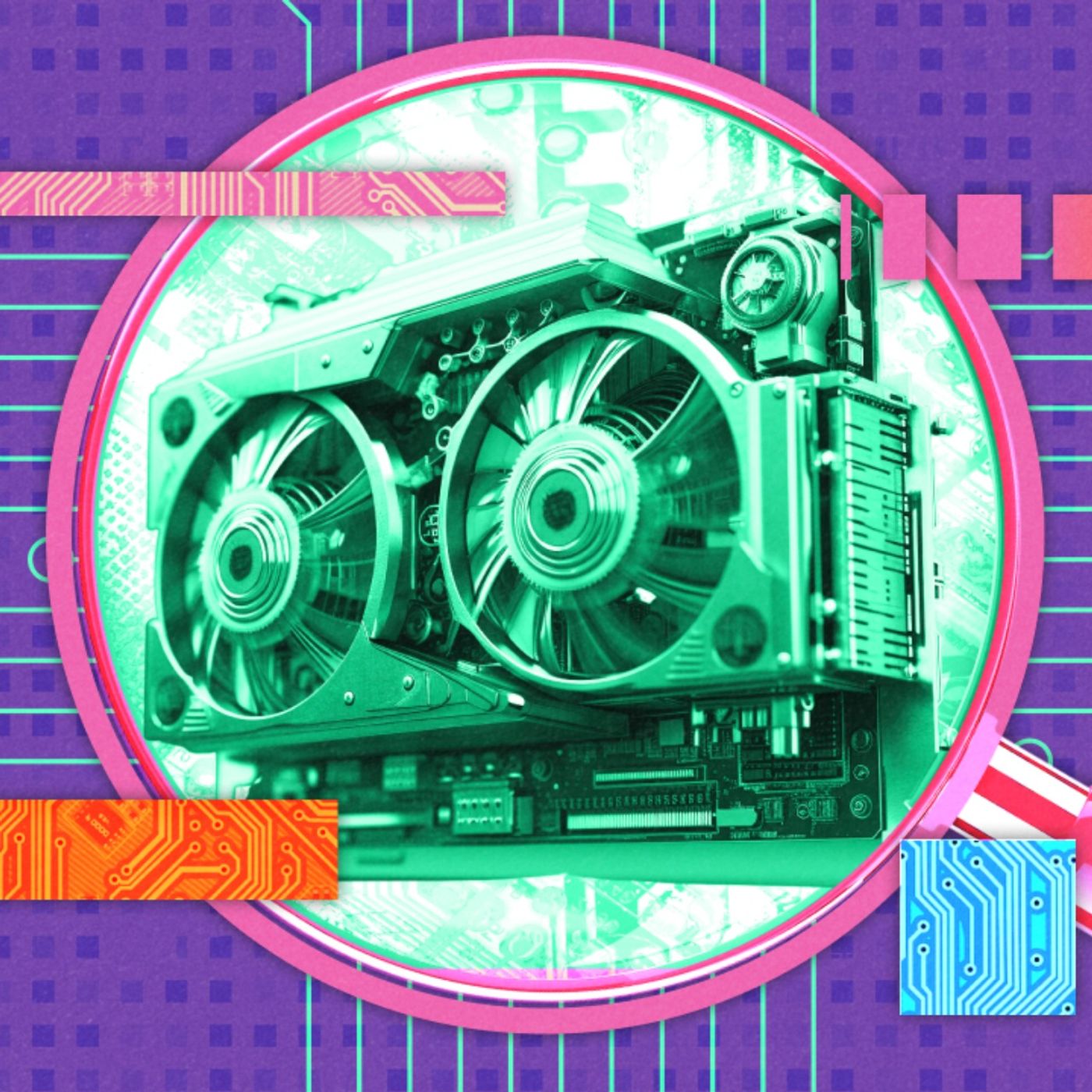Podcast Summary
The Importance of Hardware in the AI Revolution: The demand for faster and more resilient hardware to process AI data is driving innovation and growth in the hardware market, but power and heat challenges persist, and Moore's Law is being questioned. Understanding the technology behind GPUs, TPUs, and key players like NVIDIA is crucial for navigating this rapidly evolving landscape.
As software, particularly AI software, continues to dominate and infiltrate various aspects of our lives, the importance of the underlying hardware that powers these technologies cannot be overlooked. With the increasing demand for faster and more resilient hardware to process large amounts of data and unlock the full potential of AI technologies, hardware is following suit in becoming more crucial than ever. However, power and heat are becoming significant issues, leading to a reliance on parallel processes and a constant need for advancements. Moore's Law, which once predicted the exponential growth of computing power, is now being questioned. The hardware market is currently experiencing a significant supply shortage, with demand for AI hardware outpacing supply by a factor of 10. It's essential to understand the technology behind the hardware, from GPUs to TPUs, and the key players in the chip market, such as NVIDIA, as they compete for dominance. In the following segments of this series, we will dive deeper into the supply and demand mechanics, the role of founders, and the costs associated with this rapidly evolving hardware landscape. Join us as we explore this topic with Guido Appenzeller, a storied infrastructure expert with a background in both software and hardware, who provides valuable insights into the world of large data centers and the basic components that make the AI boom possible today.
GPUs: From Graphics to AI: GPUs, originally designed for graphics processing, have become essential tools for AI due to their high parallelization and tensor processing capabilities, making them ideal for powering AI applications.
GPUs (Graphics Processing Units), which are now commonly used in AI systems, are not just for graphics processing but are highly efficient at handling large-scale parallel computations. These modern chips, also known as AI accelerators or tensor processing units (TPUs), have cores specifically designed for handling tensor operations, which are essential for machine learning algorithms. The high degree of parallelization and ability to perform thousands to over a hundred thousand instructions per cycle make GPUs an ideal choice for powering today's AI applications, including large language and image models. The evolution of GPUs from their origins in gaming and graphics to their current role in AI is a testament to their versatility and performance in handling parallel computations. Despite their significant advancements, it remains to be seen whether new architectures will emerge to further enhance AI performance in the future. In essence, GPUs, with their tensor processing capabilities, have proven to be an unexpected yet valuable tool for AI engineers, enabling the development and deployment of sophisticated AI models.
NVIDIA's software ecosystem advantage in AI: NVIDIA's A100 GPUs are powerful, but their software optimizations and ecosystem make them easier for developers to use, setting NVIDIA apart from competitors and cloud providers.
The hardware ecosystem for AI is a complex landscape with various players, but NVIDIA currently holds a strong position due to its mature software ecosystem and optimized hardware-software integration. The discussion highlighted that NVIDIA's A100 GPUs are powerful, but their real advantage comes from the extensive software optimizations and ecosystem that makes it easier for developers to use their hardware. This is a strategic advantage that sets NVIDIA apart from competitors like Intel and AMD, as well as cloud providers like Google and Amazon. The software optimizations are crucial because AI models' performance heavily depends on the hardware they're run on, and NVIDIA's ecosystem allows developers to use models out-of-the-box with minimal optimization work. The software optimization field is an emerging space, with developers from academia, large companies, and enthusiasts contributing to it. Overall, the hardware-software integration is a crucial factor in the AI ecosystem, and NVIDIA's strong position is due to its successful implementation of this integration.
Representing Floats with Fewer Bits: Developers can choose to encode floats with fewer bits for performance gains but at the cost of precision. Moore's Law's ongoing advancements may lead to shifts towards software and specialized chips.
While floating point numbers are typically represented in 32 bits, developers can choose to encode numbers in other systems with fewer bits for increased performance. However, this comes with a trade-off of precision. For instance, 32-bit floats have a large range between the smallest and largest possible values, while 16-bit floats have less precision. Moore's Law, which describes the phenomenon of the number of transistors in an integrated circuit doubling every two years, is still ongoing. However, there are concerns about the limits of lithography and the physical architecture of chips. As a result, advancements in the industry may shift towards software and the specialization of chips.
Moore's Law's Evolution: From Faster Chips to Parallel Cores and Cooling Solutions: Moore's Law's evolution now emphasizes parallel cores, tensor operations, and cooling solutions due to power consumption concerns, leading to a more complex version of Moore's Law in the AI hardware industry.
Moore's Law, which once meant that computing power would double approximately every two years while transistor size shrank, has evolved to include the need for more parallel cores and increasingly power-hungry chips. This shift has led to an emphasis on tensor operations, which can be performed in parallel, and the development of novel cooling solutions to manage the heat generated by these high-performance chips. The result is a more complex version of Moore's Law, where performance increases continue but power consumption becomes a significant challenge. As the demand for high-performance chips continues to outpace supply, the relationship between compute, capital, and technology will be a key consideration for competition and cost in the AI hardware industry. Stay tuned for more insights on these topics in our ongoing AI hardware series.





